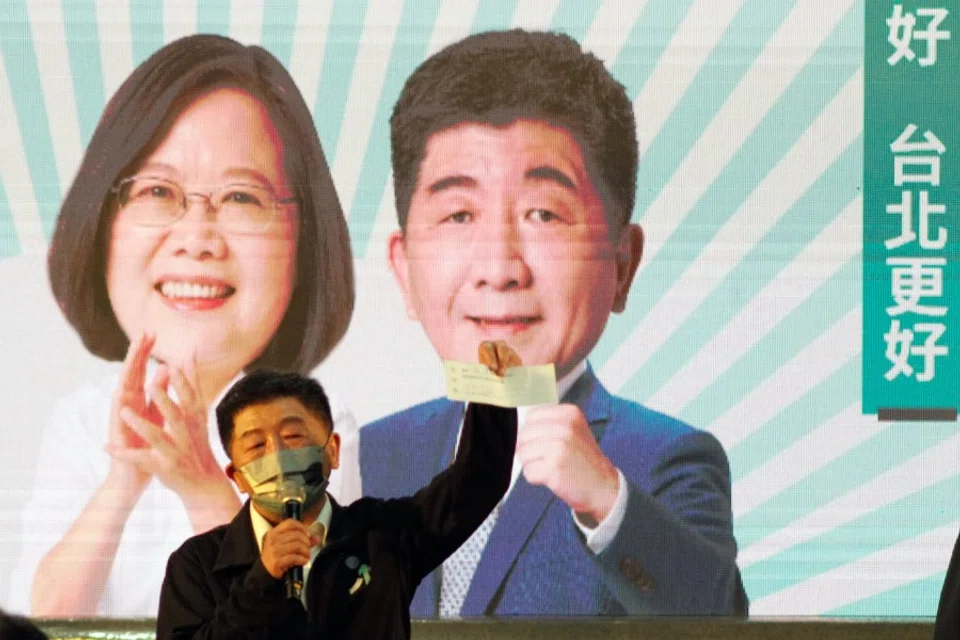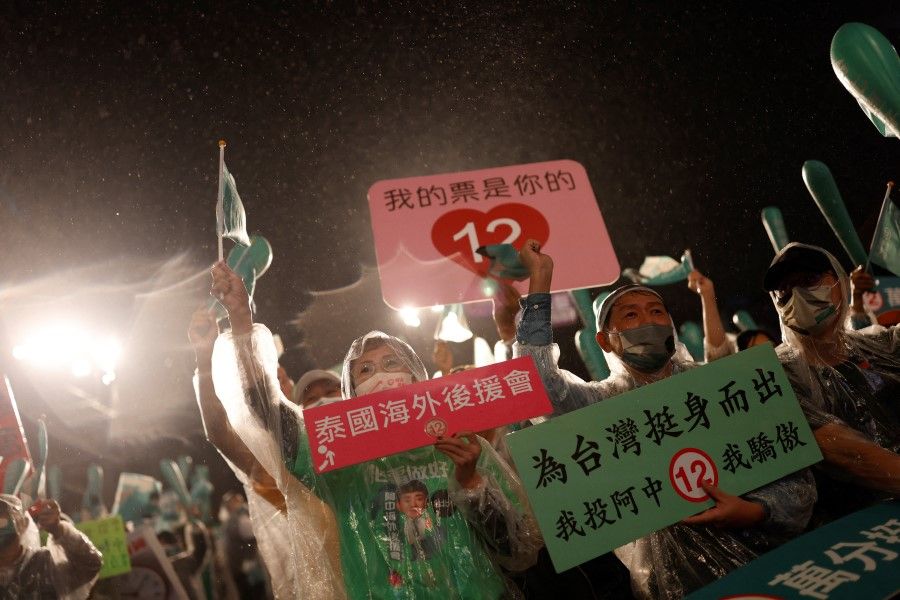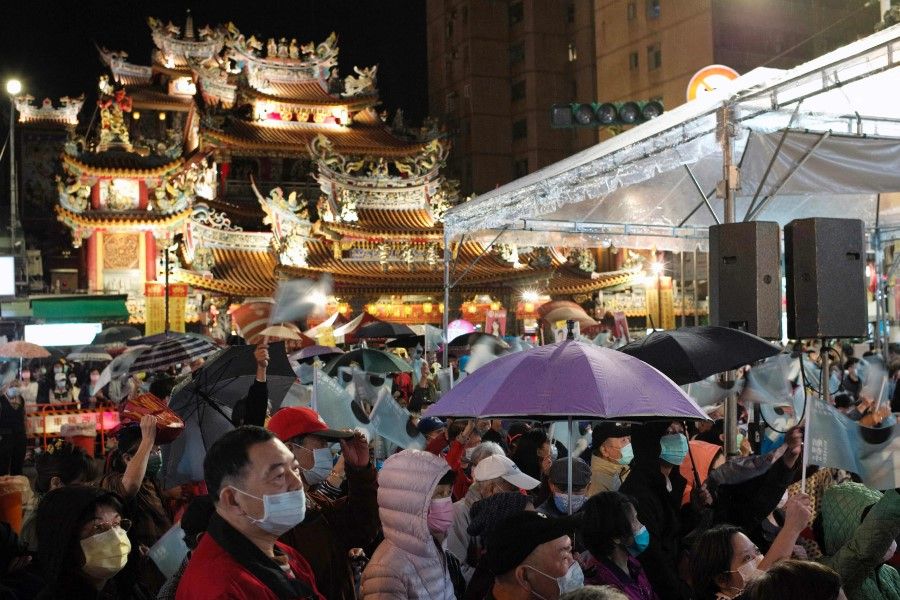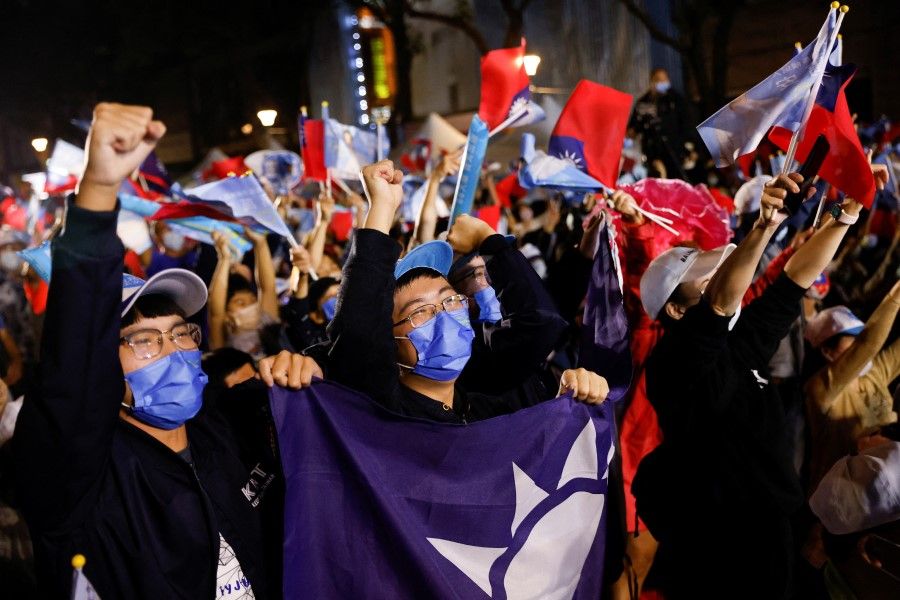DPP's anti-China card has failed to work in Taiwan's local elections

In a tough defeat during the local elections, Taiwan's Democratic Progressive Party (DPP) won only five out of 21 constituencies, accounting for 26% of the population. In contrast, the Kuomintang (KMT) emerged victorious and nearly swept the map.
How did the DPP, whose power was at its peak in the central government, lose so badly to the KMT, which is barely surviving financially? This marks the biggest setback for the DPP in over 30 years, and the most humiliating chapter in the political career of Taiwan President and DPP chair Tsai Ing-wen.
Anti-China card no longer worked
The DPP has wielded executive, legislative and even judicial and supervisory powers over Taiwan in the past seven years. It has come to believe that it has received a blank cheque from the people and hence lacks checks and balances. It has done as it liked in terms of governance, and ignored democratic values and public sentiment. It has long abused its power and violated the ethical line, only to receive a hard slap in the face from the people. The election shows that the Taiwanese are no longer tolerating lapses in democratic values and ethics, poor governance and misuse of power.
... the biggest flop was the "resist China, protect Taiwan" card, which is an old move that people have grown numb to, and failed to spark anti-China and anti-KMT sentiments.
From nomination to voting, the DPP under the arrogant leadership of Tsai has behaved inappropriately, going against public sentiment and what is right. Voters have reacted with disgust or indifference. Key DPP members, including Tsai, were well aware that their position was in jeopardy, and frantically tried to rescue the election. But their platform did not resonate with the people, and past strategies have failed - the biggest flop was the "resist China, protect Taiwan" card, which is an old move that people have grown numb to, and failed to spark anti-China and anti-KMT sentiments.

While the issue of resisting China and protecting Taiwan was not a mainstay in the local-level elections, the DPP was caught in a panic due to waning election support, and they played that card aggressively in the final phases. "Resist China and protect Taiwan" became the main pillar of the DPP's election effort, and it tried to sell the idea that Taiwan's existence was at stake to ignite a sense of crisis. It also used this tactic to divide society and smear its opponents, only to have it backfire. The anti-China agenda also triggered scrutiny of whether the DPP members were making financial gains from mainland China.
... the second phase of clinical trials of Taiwan-produced vaccines was carried out by a China-funded company, while the drones used during the 10 October fireworks were made in mainland China...
Not practising what they preach
Voters discovered that Taipei mayoral candidate Chen Shih-chung - who claimed to have the "DNA" of resisting China and protecting Taiwan - previously went to mainland China for exchanges; Taoyuan candidate Cheng Yun-peng registered a company under "Taiwan, China" (中国台湾) to earn money from mainland China; even Ker Chien-ming, coordinator of the DPP Caucus in the Legislative Yuan and a key election strategist, showed his true colours, as Yazhou Zhoukan magazine revealed evidence of his two sons earning a substantial amount of money from mainland China.
It was also reported that the second phase of clinical trials of Taiwan-produced vaccines was carried out by a China-funded company, while the drones used during the 10 October fireworks were made in mainland China, showing the double standards of the DPP's push for "resisting China and protecting Taiwan" - the DPP could do as they saw fit, but no one else could.
Pushing Taiwan to the brink of war
Before voting began, Tsai expressed her anxiety and exasperation as she quoted Greek philosopher Plato: "The price good men pay for indifference to public affairs is to be ruled by evil men." But most Taiwanese would think that Taiwan is ruled by horrible men who rant about opposing and resisting mainland China, being pro-US, and protecting Taiwan, while pushing Taiwan to the brink of war. How could the Taiwanese people allow such a party to be at the helm of central and local affairs and continue to put Taiwan's security under threat?
Indeed, "resisting China and protecting Taiwan" was the elixir that helped the DPP win three of its last four election battles.

After a devastating defeat in the local elections four years ago, the Tsai administration's reputation had hit rock bottom, even then head of the Executive Yuan William Lai challenged Tsai in the 2019 DPP presidential primary. However, Tsai deftly used Xi's comments about "one country, two systems" whereby Taiwan would become a special administrative region of the People's Republic of China, as well as the anti-extradition movement in Hong Kong, to incite anti-China sentiments and fear, to get people to agree with her tough stance against the mainland, and to spark mistrust among the people against the opposition, claiming that they would sell out Taiwan and surrender to the Chinese Communist Party. With that strategy, Tsai successfully turned things around.
... many people were worried about the looming spectre of war, and felt that the party had gone too far and got into trouble with its line of resisting China and protecting Taiwan.
In particular, two years ago when the DPP's position was threatened during the 2020 Taiwanese general election, it managed to stay in power by using the exact same rhetoric to sell the idea of a Taiwan in crisis. The Taiwanese people had previously called for the DPP's removal as they were increasingly disappointed with the DPP's unfettered governance. Voters became aware of the need for checks and balances, and that the local governments had to rein in the central government to prevent the arbitrary use of power and the continued spread of corruption.
Over the past four years, the Tsai government also capitalised on the intensifying US-China conflict to encourage opposing and resisting China, loving Taiwan and being pro-US. In August, mainland China carried out military exercises following US House Speaker Nancy Pelosi's visit to Taiwan, creating a new normal whereby it could cross the median line in the Taiwan Strait and conduct military exercises around Taiwan as it pleases, thus pushing Taiwan closer to the brink of war.
Evidently, the DPP was greatly weakened in the elections as many people were worried about the looming spectre of war, and felt that the party had gone too far and got into trouble with its line of resisting China and protecting Taiwan.
KMT coming back from rock bottom
With the DPP currently in government, many voters feel that the risk of war, power imbalance, collusion of government and businesses, and the underworld running the country is worsening, leading to swing voters wanting a change in the ruling party or strengthening of checks and balances. But the DPP has been oblivious to this change in public sentiment, believing that its support base is still strong and its slogan of resisting China and protecting Taiwan still resonates with the people. The DPP has continued to act and conduct elections with this tactic, which is why the KMT won. And while the KMT may not be able to immediately implement significant changes, at least it has come back from rock bottom.

The KMT will need to prioritise boosting its image, winning the support of young voters, and putting forward a strong presidential candidate who will not disappoint. For now, the KMT lacks a candidate who can compete with DPP frontrunner William Lai.
New Taipei City mayor Hou You-yi, who was re-elected with a high vote share, has a strong following. But if he resigns to run for president, the DPP can easily attack him for turning his back on the people and his commitments. Furthermore, given his narrow background in the police force and local administration, Hou's experience and perspective are no match for Lai's.
Meanwhile, KMT chair Eric Chu and media star Jaw Shaw-kong are popular, but Chu's support has not grown, and Jaw's supporters remain limited to the Blue camp. It remains uncertain whether they can overcome their weaknesses and win.
If the DPP loses office, the greatest consequence would be ending eight years of total governance and an adjustment to the line of resisting China, being pro-US and protecting Taiwan...
Besides the DPP and KMT, the next presidential election may see a third group of candidates - Hon Hai founder Terry Gou and Taipei mayor Ko Wen-je of the Taiwan People's Party (TPP) could join forces to form a credible alliance to take on the DPP and KMT. Indeed, that would make for an engaging and dramatic show with a far-reaching impact.
If the DPP loses office, the greatest consequence would be ending eight years of total governance and an adjustment to the line of resisting China, being pro-US and protecting Taiwan, in favour of creating a more balanced relationship between mainland China, the US and Taiwan. In such a case, Taiwan will no longer be a pawn in the US's game of containing China and this would help maintain a period of peace and stability in the Taiwan Strait.
This article was first published in Lianhe Zaobao as "民进党抗中保台牌失灵".
